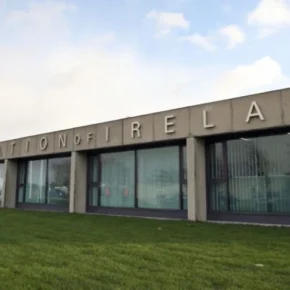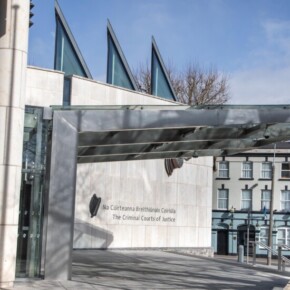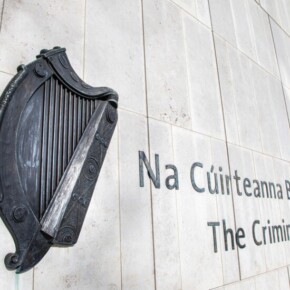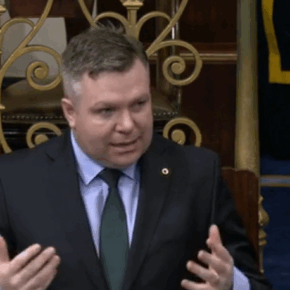Greater supports needed for young LGBTQI+ people in Dublin, says report
Dublin People 29 Apr 2024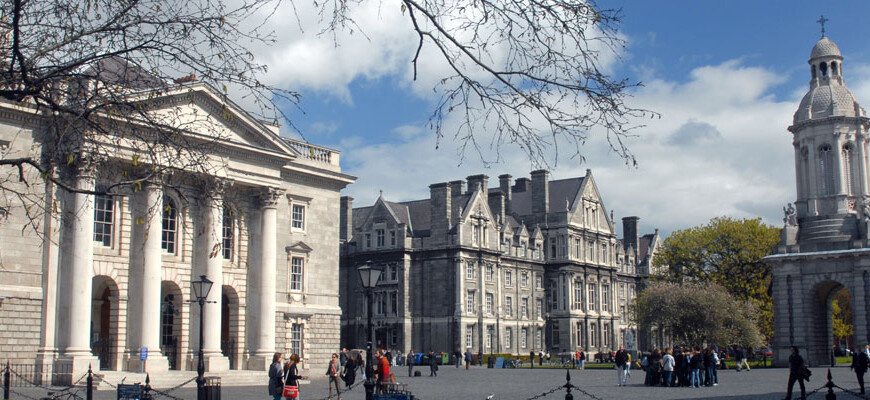
This article contains references to self-harm and suicide.
Ireland’s young LGBTQI+ population are experiencing significant mental health challenges, according to a new report conducted by a team of researchers in Trinity College Dublin and published last week in association with Belong To – LGBTQ+ Youth Ireland.
According to Belong To, the ‘Being LGBTQI+ in Ireland’ report has demonstrated the importance of supports and safe spaces for young people in Dublin.
The report found the mental health of Ireland’s young LGBTQI+ population has deteriorated since 2016, when their last study was published. According to the latest report 72% of LGBTQI+ young people – aged 14 to 18 – have self harmed, as have 75% of the transgender and gender non-conforming communities.
Participants of the survey called for more LGBTQI+ spaces and/or safe spaces, including in rural areas, and more LGBTQI+ affirmative services. This was echoed in the report’s recommendation that funding is needed for regional LGBTQI+ resource centres, community groups, organisations and social spaces to provide access to LGBTQI+ youth work services, supports for parents and family members, alongside the provision of alcohol-free spaces and facilities for LGBTQI+ people.
Amongst the 631 14- to18-year-olds who participated in the study:
· 50% experienced severe/extremely severe symptoms of depression
· 66% experienced severe/extremely severe symptoms of anxiety
· 41% experienced severe/extremely severe symptoms of stress
· 59% had a possible eating disorder
· 72% had self-harmed
· 77% reported suicidal thoughts
· 33% had made a suicide attempt
In comparison to cisgender participants, mental health challenges were highest amongst the transgender and gender non-conforming community:
· 44% experienced severe/extremely severe symptoms of depression
· 55% experienced severe/extremely severe symptoms of anxiety
· 35% experienced severe/extremely severe symptoms of stress
· 50% had a possible eating disorder
· 75% had self-harmed
· 82% reported suicidal thoughts
· 39% had made a suicide attempt
Although the study found a positive change in public attitudes towards LGB people since 2016, the public surveyed had less favourable attitudes towards the transgender and intersex communities. People who reported more knowledge and more frequent interaction with transgender and intersex people were significantly more likely to have positive attitudes.
Despite these figures, the report demonstrated the important and critical role LGBTQI+ community groups and support networks (family, friends, peers, and work colleagues) play in supporting positive mental health in the community.
84% of participants felt that having a connection with the LGBTQI+ community through LGBTQI+ groups had a positive impact on their mental health, with 93% of participants rating making LGBTQI+ friends as also having a positive impact.
Speaking about the study findings last week, Moninne Griffith, CEO of Belong To, said “the findings of ‘Being LGBTQI+ in Ireland’ are disheartening and upsetting, but to those of us working to support LGBTQI+ people, unfortunately they are not surprising. Anti-LGBTQI+ and particularly anti-trans attacks are on the rise, and we are seeing increasing levels of hate directed at our community.”
“The first study in this series was conducted close to the time of the Marriage Equality referendum, when hopes were high as to what the future held for LGBTQI+ people in Ireland. However, a sense of complacency regarding support for LGBTQI+ people has crept into Irish society since then, with a perception that – because Marriage Equality was achieved and Pride has become a central calendar highlight for the country as a whole – the struggles of LGBTQI+ people have disappeared.”
“This study demonstrates the harsh reality that the opposite is true – depression, anxiety and stress have increased amongst the community, and respondents have reported increases in witnessing bullying in schools, and more young people are considering leaving school early as a result of the treatment they receive.
“These upsetting findings should serve as a rallying cry to the Government, policymakers and allies to work with us to end anti-LGBTQI+ stigma and discrimination, and create a society where the LGBTQI+ community can feel safe and supported. That required funding for LGBTQI+ resource centres, community groups, organisations and social spaces for members of the community living in Dublin, and throughout Ireland.
Professor Agnes Higgins, Professor In Mental Health, Trinity College Dublin, who led the research team, said “while much progress has been achieved and the majority of LGBTQI+ people over 25 years of age are doing well, the findings continue to highlight that a significant proportion of those under 25 years of age are struggling with their mental health, self-reporting high levels of self-harm, suicidal behaviour, symptoms of possible eating disorders, and symptoms of severe and extremely severe stress, anxiety and depression. The research also reveals that in comparison to their cisgender peers, transgender and gender non-conforming participants report poorer mental health.
“For LGBTQI+ adolescents, school continues to be a challenging place, with many experiencing or witnessing homophobic, transphobic, or biphobic bullying. Bullying not only negatively impacted on young people’s desire to leave school early, but those who experienced LGBTQI+ related bullying in school, had poorer wellbeing and mental health outcomes in comparison to those who had not experienced LGBTQI+ related bullying. For many transgender and gender non-conforming participants, the school environment was particularly challenging in terms of expressing one’s gender identity.
“It is also clear that harassment and anti-LGBTQI+ hate speech is still a reality for many LGBTQI+ people in Ireland today, with many feeling unsafe to express their sexual orientation or gender identity in public. The expansion of online forums appears to be exacerbating the problem, with 23% reporting experiencing anti-LGBTQI+ hate speech either online or in public media within the last year.
“The research has also many positive messages, with many expressing pride in their LGBTQI+ identity, as well as celebrating the connection, solidarity and sense of belonging that being engaged in LGBTQI+ culture and politics engenders. Importantly, a positive shift in public attitudes since 2016 was also evident, although less favourable attitudes towards transgender and intersex communities was apparent”.
The ‘Being LGBTQI+ in Ireland’ study can be downloaded here: https://www.belongto.org/support-our-work/advocacy/lgbtq-research/


